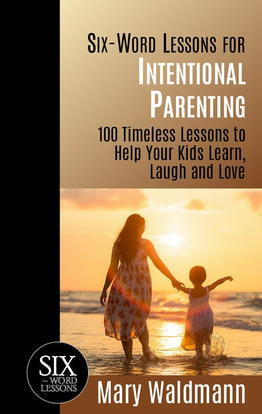 When our children were applying to colleges, we tried to keep in mind that these were going to be their college years, not ours. we acted as consultants and cheerleaders, but we didn’t encourage one school over another. Instead we encouraged them to look at many options and to think about what they wanted to get out of the college experience. This included not only academic majors, class size, and teaching style, but also things like climate and lifestyle. Sometimes I had to bite my tongue. For instance, our oldest daughter was convinced she wanted to go to a Boston college. Knowing that she is definitely a warm-weather girl who liked the cold only when she was on skis, I just knew that if she went to Boston, she’d be calling in tears come January, wanting to come home and thaw out. Little things like climate, not just classes, can make a difference. I gently mentioned the Boston winter weather, but she was sure that’s where she wanted to apply. I was so relieved when she wasn’t accepted there! She wound up going to the University of San Diego, which was not only in a warmer clime, but much better suited to her in terms of both academics and lifestyle. Our son, a type-A achiever, wound up at my alma mater, but I never suggested he should go there because I had. Stanford was his first choice based on its academic rigor, entrepreneurial orientation, course offerings . . . and because he flat-out adored the campus and the lifestyle. The fact that his mother and grandmother went there wasn’t a factor. He applied at a few other schools, but his heart was set on Stanford and, fortunately, he was accepted. One of the things that makes me sad about the admissions scandal is that it’s caused many people to look askance at all private admissions counselors and that’s too bad. A legitimate, experienced counselor can be a valuable resource for some kids. Our youngest daughter had no clue where she wanted to go to college other than a big-city college. and there are thousands of good colleges out there and many in big cities, but not too many were on her parents’ radar. An admissions counselor was able to explore with her what she wanted her college experience to be, what her strengths and weaknesses were, where her interests lay and her learning style. The counselor was able to draw on her experience and knowledge of various schools to help our girl narrow her search to a half-dozen or so colleges. The cost was reasonable and it was money well spent. When it came to filling out the applications, we let our kids know that we were available to proofread, or make essay suggestions, but we weren’t doing the applications or essays for them. We also made it a point not to nag about deadlines—a few gentle reminders were all they got. We figured that they were young adults who needed to take responsibility for the process, especially since they were going to be on their own in college the following year with no one to remind them of reading assignments or term paper deadlines. Each of them owned the process, but in very different ways. Our oldest daughter, true to form, waited until the last minute to do her applications, dashing off her essays at the last minute. I’ll never forget her calling from the post office the next day because it was closed Saturday afternoon. She had to FedEx her applications which I’m sure didn’t make a great impression on admissions officers! Fortunately, she got into one school and, blessedly, it was the one I thought would be the best match for her. She thrived at the University of San Diego. But had she not been accepted, she would have had to live with the consequences, attending the local community college and re-applying the following year. Like I said, she had to own the process. Our son’s approach was so different that one had to question whether these two kids sprung from the same gene pool! The wall above his desk was posted with timelines and checklists for months, and he spent weeks polishing his essays, including asking us to proofread and make any editing suggestions. For the schools he applied to, all the applicants had top grades and scores, and loads of extra-curricular activities. I think John’s essay was what made him stand out; it really conveyed his values and personality and was extremely well-written and helped get him into all the schools to which he applied. We were lucky that all three of our kids got into schools that were “right” for them and did well in college. I think they did well because they had already learned the lessons of responsibility, initiative, hard work and follow-through. If you’ve read Six Word Lessons for Intentional Parenting, you know we started teaching those lessons early. You’ve heard me say that we were “consultant” parents, never “helicopter” parents. We were ready with suggestions, encouragement and consolation when needed, but we let our kids take responsibility for their choices and actions when consequences were small. By the time they applied for college, they knew we were there for support but that the decisions were theirs. It’s a very gradual process, starting in toddlerhood with simple things like food and clothing choices, but if you allow them to learn from them, your high school senior will be well on the way to successful adulthood. 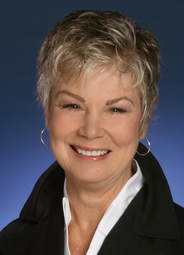 A graduate of Stanford University, Mary Waldmann and her husband Raymond raised three children who are now independent, well-adjusted and happy young adults. Before becoming a mother, she was a successful real estate broker, political consultant and public relations executive, and worked as a part-time communications consultant when her children were young. Mary is the author of Six-Word Lessons on Winning with Today's Media , Six-Word Lessons for Intentional Parenting, and Six-Word Lessons for Compelling Speeches.
0 Comments
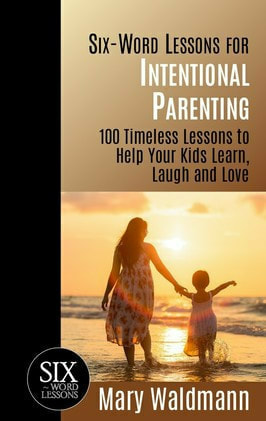 With the start of school, many of our kids will be participating in youth sports. And we’ve all been at games where a parent in the stand berates or verbally abuses the coach. Or they yell at the referee for a perceived bad call. Perhaps some of us have found ourselves yelling at the coach or a referee. Please, please do not be that parent! According to a 2017 survey of 1,700 coaches and referees of amateur athletics, sportsmanship at games is getting worse and parents are the biggest problem (reported in the Wall Street Journal, 2019). They also said that parental behavior is much worse in youth sports than at the high school or college level. Why do parents behave like that? We all want our children to do well. But sometimes we identify too much with our children. We perceive their successes and failures as reflecting on us, threatening our own identity and success. So we want to blame the problem on someone else: the referee for bad calls, the coach for bad coaching or unfairness to our child. But our children are not us; their successes and failures belong to them. Now I’m not saying we shouldn’t identify at all with our children. But we can get too wrapped up in outcomes: “I’m not happy if my son doesn’t play quarterback,” or, “I’m upset if my daughter isn’t a starter on the soccer team,” or, “I’m disappointed if my kid doesn’t score.” Instead of focusing on outcomes, we should simply enjoy the thrill of watching our children do something they enjoy. And what does it mean to your child if you’re yelling at or criticizing a coach or referee? First off, it frequently embarrasses your child. Secondly, it sends a message to kids that they can’t deal with their own problems, or successfully navigate situations on their own. And third, it sends a message to your child that bad behavior and rudeness are okay. None of these are messages we should want our kids to receive. So what can you do if you really think your child is being treated unfairly or not receiving enough coaching attention from the coach? First off, wait for an opportunity to talk to the coach privately. Call them or talk to them before or after a practice. Don’t do it immediately after the game. Give yourself a chance to calm down and be objective before you say anything. Present your concerns in a polite and positive way. And listen to what the coach has to say. You may not be seeing the whole picture. You can also ask your spouse or a fellow team parent to be your calm-down coach. Ask them to tell you if you’re getting out of hand and need to go to the concession stand or the parking lot to cool down. We should all focus on watching our kids have fun. Be there, encourage your child, but don’t embarrass them by acting badly. Our job as parent fans is to find a seat, sit down, cheer them on, but otherwise, shut up. Anything else will detract from giving your child a good experience. It’s enough that you’re there for them so just sit back and enjoy watching your kid play the game. 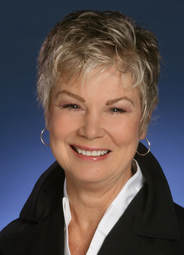 A graduate of Stanford University, Mary Waldmann and her husband Raymond raised three children who are now independent, well-adjusted and happy young adults. Before becoming a mother, she was a successful real estate broker, political consultant and public relations executive, and worked as a part-time communications consultant when her children were young. Mary is the author of Six-Word Lessons on Winning with Today's Media , Six-Word Lessons for Intentional Parenting, and Six-Word Lessons for Compelling Speeches. 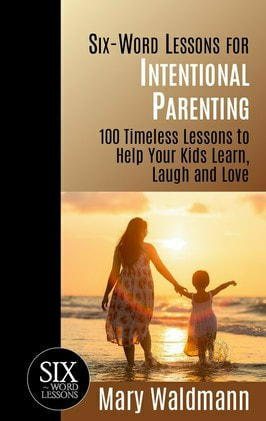 During August and September, many parents are seeing our kids off to college for the first time. You’re focusing on outfitting their dorm room, helping them pack, and making travel plans, but don’t forget to pause for one more very important task: anticipating and preparing for the emotional, social and academic challenges ahead. Even students with high grades, great scores and loads of extracurricular accomplishments may have trouble with the transition to college and they need your help to prepare. In the 2018 survey of 155,000 students on almost 200 campuses, the American College Health Association found that more than 85 percent of college students described “feeling overwhelmed” and half felt “things were hopeless.” And the figures are most likely highest among freshmen. What are the biggest challenges? 1. Fear of not being socially accepted or making new friends This is a major one. Being in a whole new social environment, many freshmen feel isolated, telling their parents, “I feel so lonely” or, “I hate my roommate and he hates me.” There is also the fear of rejection in fraternity or sorority recruitment activities. And when social life fails, so often does academic effort. 2. Fear of not making it academically. This can present an even greater challenge for students who excelled academically in high school but now find themselves in classes where all the students were academic stars in their high schools. I remember a freshman seminar on French revolutionary novels where I discovered that many of my peers came from prep schools and had already read the books—in French! I felt totally inadequate and remember calling my dad, saying, “I don’t belong here! I’m sure they thought they were accepting somebody else with my name.” He assured me that the admissions office hadn’t made a mistake and that I would do just fine, but I still had some real doubts my first few weeks. 3. Unrealistic expectations of themselves. Again, the academic stars of high school may assume they will always be at or near the top of the class. When expectations aren’t met, feelings of great disappointment, failure and self-blame can follow. The extreme is perfectionism, where a student can never measure up to his own standards. And parental pressure for success exacerbates problems. How to help The greatest danger from these challenges is that your student will keep feelings bottled up and not share them with anyone, particularly with a healthcare professional. The best preparation is to talk with your student about the challenges ahead and help them to plan how they will deal with them. If they are struggling, the first step is to acknowledge the difficulties and recognize that they may need help, whether from parents, dorm counselors, or campus health center professionals. But how can you know if your child is struggling and know when and how to offer encouragement or suggestions? College privacy rules make it difficult to find out how a student is doing, and dorm advisors and teachers are generally not allowed to call parents with concerns. Once they are eighteen, federal privacy laws prevent parents being contacted by or getting information from medical and mental health providers. However, students can grant permission for campus academic advisors and healthcare providers to communicate directly with parents so consider discussing this with your student. Colleges, faced with an epidemic of anxious or depressed students, are beginning to step up to the plate with increased counseling opportunities, mentoring, peer support groups and programs to teach healthy living. They are also trying to reduce the stigma of mental illness and making it a little easier for students to admit that they need help. The most important thing is to talk to your college student. Amid all the luggage and boxes, take time to sit down and help him or her anticipate and prepare for the social, emotional and academic challenges ahead. If your child has already left for college, introduce the subjects at the first opportunity. Provide ongoing open communication channels and emotional support. Don’t assume that they’re doing just fine—ask, but don’t probe. Remind them that even small failures are learning opportunities and can presage success. Set up regular phone or video calls. Student mailboxes are generally empty most of the time, so the occasional letter of encouragement—with or without a care package—can be the bright spot of your student’s day (enlist grandparents in this). With your love and encouragement, they can surmount all the challenges and make their college years happy and successful. 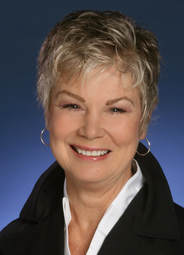 A graduate of Stanford University, Mary Waldmann and her husband Raymond raised three children who are now independent, well-adjusted and happy young adults. Before becoming a mother, she was a successful real estate broker, political consultant and public relations executive, and worked as a part-time communications consultant when her children were young. Mary is the author of Six-Word Lessons on Winning with Today's Media , Six-Word Lessons for Intentional Parenting, and Six-Word Lessons for Compelling Speeches. 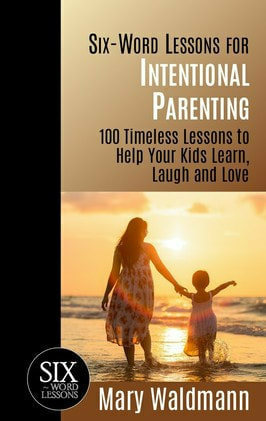 As I read one news report after another about the college admissions scandal, I can’t help but ask myself where we went wrong. How did we reach the point where parents bribe and cheat to get their kids into the “good” colleges? When did the “where” become more important than “why”—why go to college-- and “what”—what you do in college? I think parents frequently place more importance on where their kids go to college than the kids do—or would if left to freely make a choice. It’s one thing to encourage your child to do her best, to aim high and dream big. But when did we start equating self-worth—both our own and our children’s-- with the name of the college(s) they’re accepted to? Many kids feel overwhelming pressure to get into a top-tier college, even when it may not really suit their needs, interests or learning style. And there are hundreds and hundreds of small colleges that provide excellent education experiences and may better suit your child than a “name” school. When choices are limited on the basis of prestige, it’s by-and-large, the fault of us parents. Too often, we parents have our own self-worth wrapped up in our kids’ achievement, thinking that if my child doesn’t get into an ivy league school, I must not have been a good enough parent. Your child is not you. His successes and failures are not yours to own. When we forget that, we can push too hard for success in superficial terms because, consciously or unconsciously, we think it reflects on us. Other parents may try to live out their own unfulfilled dreams, for instance, pushing a child to attend Harvard because they wish they could have. Or we expect our children to follow in our footsteps and attend our own alma mater, stressing family tradition more than what’s appropriate for the student. And of course, there are bragging rights. What parent of a high school senior hasn’t been to a spring cocktail party where conversation turns to college acceptances--“good” schools often elicit congratulations and nods of approval while equally good but less prestigious names are greeted with a tepid “That’s nice”. Let’s admit it: there can be a bit of snobbery going on in all this college admissions stuff. Most kids want to please their parents and parental projections can be insidious, especially at a time when our students are struggling to develop their own sense of identity. We have to remember that it’s going to be their college years, not ours. And if we want their college experience to be a good and successful one, we should encourage them to choose a school based on their interests, abilities, learning style and lifestyle, not purely on the prestige factor or where we want them to go. Far more important to students’ success than the college’s ranking on competitive lists is how involved a student is after arriving. According to a 2014 Gallup-Purdue study of more than 30,000 college graduates, engagement on campus is a greater predictor of future job satisfaction and happiness than the status of the school. Students who engage in campus life, build relationships with professors, mentors and friends, and get involved in projects and extra-curricular activities are the ones who will succeed—in college and in life. That’s more likely to happen when the school choice is based on your child’s preferences and needs, not acceptance rates and perceived status. I can’t help but wonder how the students feel who’ve just discovered their parents cheated to get them into college. They can no longer be proud of getting in even if they might have gotten in on their own merits. They’ve been deprived of the satisfaction that comes with achievement. When it comes to college applications, we should encourage, support, ask questions about preferences but remain in a consultant role. You can offer help with editing or proofreading essays, but don’t insist. Don’t nag about deadlines. And for heaven’s sake, don’t fill out the applications or write the essays yourself! High school seniors are young adults and the process (and results) should belong to them. Let them own it. 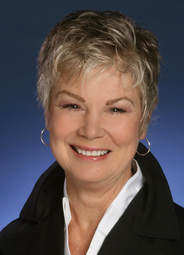 A graduate of Stanford University, Mary Waldmann and her husband Raymond raised three children who are now independent, well-adjusted and happy young adults. Before becoming a mother, she was a successful real estate broker, political consultant and public relations executive, and worked as a part-time communications consultant when her children were young. Mary is the author of Six-Word Lessons on Winning with Today's Media , Six-Word Lessons for Intentional Parenting, and Six-Word Lessons for Compelling Speeches. 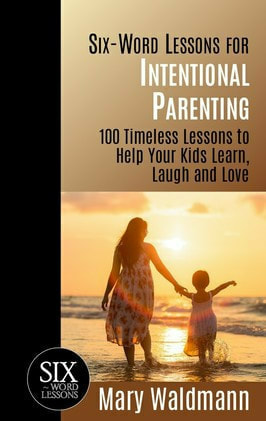 Many of us have had the experience of watching our child fail at something: a science fair project that gets a poor grade, a failed test, a major sports loss. While it’s painful to see our child fail, they are actually receiving a gift: the opportunity to learn from failure, to try again, and to learn resilience in the face of loss. As Jennifer King Lindley reports in her article, How to Raise a (Successful) Failure (March 2019 REAL SIMPLE), this failure-deprived generation is frequently saved from possible failure by parents who swoop in to bawl out coaches and wheedle teachers for better grades. Avoidance of failure can result even from the parents’ best intentions. She quotes Jessica Lahey, author of the book, The Gift of Failure as saying, “It’s painful to watch your child stumble. You want to show your love by making a problem instantly better.” Hence the so-called “helicopter parents” who swoop in to rescue a child from failure. But we need to take a longer view, helping our children to grow from life’s setbacks when the risks are small and we’re here to support them. Resilience—not letting setbacks destroy you, learning from them, trying again—is one of life’s necessary and important skills. We don’t rejoice in easy victories, such as the soccer trophy for participation. But the hard-fought victories, where we overcome failure by learning from it, trying again and working harder, are the ones that build our confidence and self-esteem. Parents who expect perfection, either explicitly or implicitly, or set too-high standards, can also discourage the risk-taking that leads to small failures from which children learn when they are young. My parents set very high standards and I believed—rightly or wrongly—that I had to be “the best” to gain their love. As a result, I avoided trying things at which I felt I couldn’t excel. Not being very athletic, I avoided sports completely until I learned to ski in my thirties. And I think I missed out on some things I would have enjoyed. While over the years I’ve learned that it’s fine to be “good enough,” I’m still very risk-averse. But, as Lindley says, “You don’t want to just throw your kid to the wolves. (‘Good luck with choosing a college! Bye!’)”. We need to encourage our kids to try new things, to challenge themselves and risk failures from which they can learn, but we also need to serve as consultants, offering advice—but, with older children, only when asked—and emotional support. See Part 2 to learn three ways to help your children learn from failure. 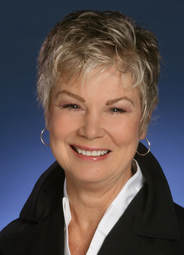 A graduate of Stanford University, Mary Waldmann and her husband Raymond raised three children who are now independent, well-adjusted and happy young adults. Before becoming a mother, she was a successful real estate broker, political consultant and public relations executive, and worked as a part-time communications consultant when her children were young. Mary is the author of Six-Word Lessons on Winning with Today's Media , Six-Word Lessons for Intentional Parenting, and Six-Word Lessons for Compelling Speeches. 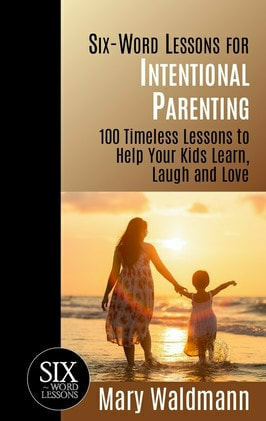 See Part 1 here. Beyond encouraging risk-taking, how do we help our kids learn and grow from the inevitable small failures along the way? Start by stepping back and letting the small failures happen. Let the little one lose to you at Old Maid. She might have a meltdown, but don’t lose your cool. Say “Honey, I know it feels bad to lose and you feel awful.” If she sees that you’re not upset and that you love and encourage her, she’ll see that failure isn’t the end of the world. Encourage your child to play sports, a great opportunity for learning from failure. But don’t be the parent who berates the coach or frequently races to field with left-behind soccer gear. That defeats the purpose. Above all, try to avoid seeing your child’s failures as a reflection on your parenting—that also leads to the urge to helicopter in to prevent your child from failing. But everyone fails at something sometime and failing when the consequences are still small teaches great life lessons about trying again, working harder and learning from the inevitable failures. Remember that your child isn’t you—you don’t need to own their shortcomings. Second, teach your child self-compassion. Screwing up hurts. The article How to Raise a (Successful) Failure by Jennifer King Lindley, (REAL SIMPLE Magazine, March 2019) quotes Rachel Simmons, author of the book Enough as She Is: How to Help Girls Move Beyond Impossible Standards of Success to Live Healthy, Happy and Fulfilling Lives, who says, “We need to sit with them with those difficult emotions. Having parents take their feelings seriously is gold for kids—it is often what they most want. And they will learn that bad feelings aren’t going to destroy you.” Use active listening and validate their discomfort and unhappiness. Encourage them to practice self-compassion by saying, “If your best friend was feeling like this, what would you say to them right now?” Helping them through the emotional pain helps them feel capable of trying again. Third, emphasize the lessons. In the article, Kyla Haimovitz, a Ph.D psychology researcher at the University of Pennsylvania who has studied how parents react to kids’ failure, says, “Your reaction has a huge impact on your kids. Talk to them in a way that focuses on the process: ‘I’m sorry you are not happy with how things went. Could you try it in a different way? Could you talk to your teacher?’” What isn’t helpful is language that suggests their abilities are fixed: “That’s OK, honey, I wasn’t good at science either” or “Don’t worry, maybe sports just aren’t your thing. You’re really good at reading.” Don’t be afraid to share your own screw-ups. You may think being a good role model means you have to appear perfect, but it’s quite the opposite. Sharing your past mistakes lets your child see that mistakes are normal and so helps them to take their own failures in stride. Or talk about the struggles their heroes went through on their way to success. Finally, Lindley concludes, “It’s never too late to stop running interference for your child. If you catch yourself filling out the learner’s permit form for your teen driver, be direct and say, ‘I’m sorry I haven’t been treating you as the competent person you are. You can do it and I’m here for you if you need me.” And don’t berate yourself for interfering. We all make mistakes! Consider it just another learning experience and resolve to do better in the future. 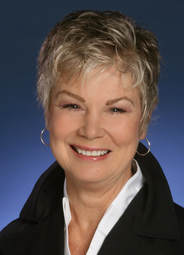 A graduate of Stanford University, Mary Waldmann and her husband Raymond raised three children who are now independent, well-adjusted and happy young adults. Before becoming a mother, she was a successful real estate broker, political consultant and public relations executive, and worked as a part-time communications consultant when her children were young. Mary is the author of Six-Word Lessons on Winning with Today's Media , Six-Word Lessons for Intentional Parenting, and Six-Word Lessons for Compelling Speeches. 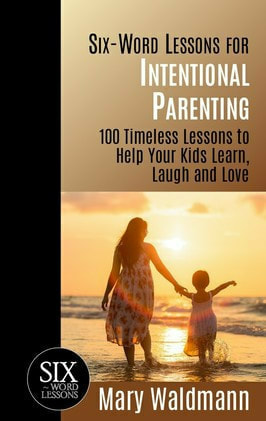 When our kids were in school, they all had desks for studying. But did they sit at the desks to study? The answer was frequently “no”—they preferred to study while lounging on their beds, particularly as they got into middle school and high school. I felt that they would study, read and write more effectively, with better concentration, if they were at the desks, but I quickly gave up that battle. Despite lounging on the bed to do homework, they all had excellent grades. Was I wrong in wanting them at their desks? Apparently, I was, according to Heidi Mitchell in a recent Wall Street Journal article entitled “Is It Healthy for Teens to Study in Bed?” She consulted a number of experts in education psychology, sleep medicine and ergonomics and you, like I, may be surprised to hear what they said. Basically, if you’re not distracted by discomfort, you study just as effectively on the bed as you do at a desk. “Lying down or sitting upright doesn’t impact your brain function—your posture doesn’t matter,” says Atul Malhotra, a physician and professor of medicine at the University of California, San Diego. A study at the University of California, Davis, found no difference in grade point average between those who worked at their desks and those who studied in bed. The study’s authors concluded that the assumption that studying in one position is preferable to another is false. Harris Cooper, a social psychologist specializing in education, says, “If they are getting their homework done and It is of quality, then knowing what environments work for them will prepare then to be lifelong learners in various locations.” He suggests that parents and teens track progress over time—if they’re doing well with studying in bed, all’s fine. One concern that I suspect we parents may share is that studying in bed can get too cozy, promoting drowsiness which interferes with learning. When someone reads a book just before falling asleep, and puts the bookmark on page 89, it’s common not to remember in the morning what happened on page 88 but they’ll remember what was on page 87, Dr. Malhota says. What we read as we’re falling asleep generally doesn’t register—I know I always have to read the last page or two again the next day. He suggests to his teen daughters and to anyone who does homework on the comforter at night go back a few pages or ten-minutes-worth of work in the morning to review and redo. He also doesn’t mind a little lie-in studying in the morning: “You’re often free from distractions in bed…before the day’s chaos begins.” Studying in the morning before arising may be a good opportunity to learn and retain new information. Ergonomics expert Janice Fletcher emphasizes that effective studying, wherever you do it, requires that you be comfortable, not distracted by muscle fatigue or other discomfort. Among those who realize that a lot of studying takes place in bed are industrial designers who have come up with across-the-bed tables that angle laptops and books for comfortable reading, reading pillows that cradle the neck, back and arms, and even hard-top pillows for resting a laptop on. A soft light can prevent harmful glare on the eyes. If your child is a bed-studier, you might ask them if they experience any discomfort as the time passes—if so, explore some of these options. For homework involving lots of papers and books, a desk or table might be more effective, but generally bed-studying is effective. So, don’t worry if your child prefers to sprawl on the bed for homework. It turns out that works just a well as a desk. And allowing your student to make choices is a good thing—learning to figure out what works best for you is an important life lesson. 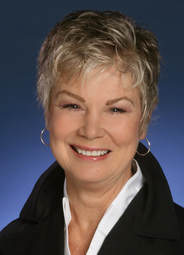 A graduate of Stanford University, Mary Waldmann and her husband Raymond raised three children who are now independent, well-adjusted and happy young adults. Before becoming a mother, she was a successful real estate broker, political consultant and public relations executive, and worked as a part-time communications consultant when her children were young. Mary is the author of Six-Word Lessons on Winning with Today's Media , Six-Word Lessons for Intentional Parenting, and Six-Word Lessons for Compelling Speeches. 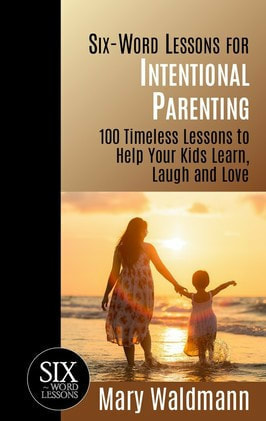 If you have a teenager, you’ve probably heard, as I did, both well wishes and sympathetic eye rolls from friends, saying things like “Good luck with the teen years!” The stereotype of the rebellious, moody, risk-taking teen runs deep in American culture, reinforced by movies and television which frequently show teens at their worst. But in the article,Don’t Think the Worst About Your Teenager, published in the February 2, 2019 Wall Street Journal, Jennifer Breheny Wallace challenges that notion and says that an increasing number of psychologists are pushing back against the negative stereotype, seeing it not only as inaccurate but also harmful to teens. Though they can be turbulent, the teen years aren’t necessarily a time of rebellion, conflict and risky behavior, and this is borne out by recent decades’ research, says Richard Lerner, director of the Institute for Applied Research in Youth Development at Tufts University, “It’s not that adolescence doesn’t have its problems and challenges,” he notes, “but so does every period of life, like the toddler years or aging.” In fact, I can remember saying to my newly adolescent daughter just as I entered menopause, “We need to be patient with each other because we’re both on the hormonal roller coaster at the same time.” In fact, the trends in adolescent risk-taking have been positive in recent years, with substance abuse, unprotected sex, hazardous driving and alcohol use have all declined since the nineties. “While on average, adolescents do engage in more risk-taking, experience more negative moods and are more likely to fight with parents than younger children, parents need to know that the absolute levels of those things still remain quite low during the teenage years,” says psychology professor Christy Buchanan of Wake Forest University. Dr. Buchanan says that adolescents who do display high levels of negative moods and behavior often have underlying conditions that may have been present since childhood. The danger in the stereotype, she says, is that parents may dismiss troubling behavior as simply “teens being teens” when it really is a symptom of something more serious that could benefit from early intervention. Similarly, parents who believe the stereotype of adolescence is realistic may even unknowingly be contributing to a self-fulfilling prophecy. Research indicates that teens who are expected by their parents to be rude, grumpy, argumentative, selfish and impulsive are more likely to be so. Research also indicates that adolescents tend to start or continue using illicit substances when their parents believe they are using them, even when they weren’t. The same is true for smoking. Teens may interpret parents’ assumptions as expectations and conform to them. Buchanan cites research showing that parents, particularly mothers, who believe they can positively shape their teen’s behavior are more likely to use positive parenting strategies, such as greater involvement and communication, which in turn foster positive behavior. One way Buchanan says parents can lessen the hold of negative stereotypes on their teens is to counter them directly. Parents can talk with their teens about the validity of these assumptions and encourage activities like volunteering that contradict negative stereotypes in a concrete way. As Dr. Lerner says “Too often we describe the ‘good’ teens because of what they don’t do” They’re good kids because they don’t smoke or do drugs or hang out with the wrong crowd—what a dispiriting message for a teen to hear.” We owe it to our teens to write a more positive script for these years,” he says, going on to say that parents who turn their focus to the admirable things their teens do, who help to foster their child’s strengths and talents, will find that their teen has a much easier time getting through adolescence. And by extension, the parents will have an easier time of it, too. So, forget the stereotypes and pay attention to the positive realities of adolescence. Celebrate the good things about your teen and the ages from twelve to twenty don’t necessarily need to be filled with stress and anger. Get to know the complicated and unique person your teen is becoming and enjoy the relationship. While our three children could be challenging as teens, we always expected the best and, by-and-large, we got it. We relished our relationships with them and do to this day. 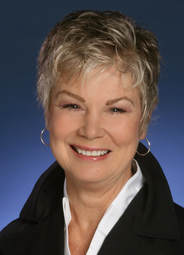 A graduate of Stanford University, Mary Waldmann and her husband Raymond raised three children who are now independent, well-adjusted and happy young adults. Before becoming a mother, she was a successful real estate broker, political consultant and public relations executive, and worked as a part-time communications consultant when her children were young. Mary is the author of Six-Word Lessons on Winning with Today's Media , Six-Word Lessons for Intentional Parenting, and Six-Word Lessons for Compelling Speeches. 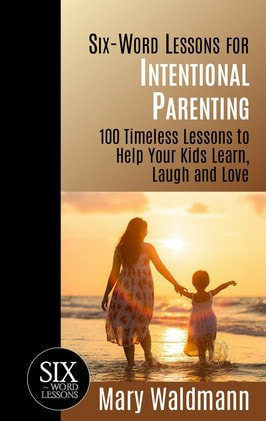 If you’re shopping for last minute gifts for your grandchildren, you might want to heed the advice contained in the December 20, 2018 Wall Street Journal article, Do’s and Don’ts for Grandparents Choosing Gifts. According to recent surveys, grandparents are very generous in giving gifts and their spending tops that of parents. So, if you’re going to spend all that money, what should you spend it on? Hopefully it will be something that delights the child and gets a parental nod of approval. One suggestion Is to take your grandchild out to dinner at their favorite restaurant—make it one-on-one with no parents or siblings. This is grandparent bonding time. After dinner, you might also take them to a favorite store to choose a gift to go under the tree. Even if they know what it is, it’s nice to have something that can be unwrapped on Christmas or Hanukkah. Another option is to invite (or give a gift card) for the child and their best friend to attend favorite activity or event: a trampoline park, a sports event, or the skating rink. After age 5, we did this for our children’s birthday in lieu of a party. They loved it, we avoided the over-the-top birthday parties many of the other parents were throwing, along with the unwanted or unneeded toys. With younger children, the traditional letter to Santa can be a good starting place. With older children, ask the child or their parents for a wish list. We do this for both birthdays and Christmas. It avoids giving toys they won’t play with or gifts that will be returned. If you have your own ideas, check with the parents first to see what is wanted, need and allowed. It’s a sign of respect for the parents and avoids unwanted gifts. Don’t try to compete with the other grandparents for who “wins” on number or expense of the gifts. It can turn into a never-ending competition which is not good for either the grandparents or the child. There’s nothing wrong with gift cards or cash for older children who are picky or are saving for something specific like electronics or a trip. But, according to etiquette consultant Jay Renner, it’s best not to make the gift a contribution to the college fund: “While it’s a nice idea, it’s not warm and fuzzy.” Be sure to set some spending limits for yourself, especially if you have a lot of grandchildren. Thoughtful gifts, even if inexpensive will be appreciated and enjoyed and you won’t exceed your budget. If you’re going to buy multiple gifts for a child, let me once again quote the wise parent who suggested a limit of four gifts: something they want, something they need, something to wear and something to read. Happy holidays everyone! 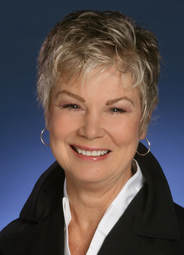 A graduate of Stanford University, Mary Waldmann and her husband Raymond raised three children who are now independent, well-adjusted and happy young adults. Before becoming a mother, she was a successful real estate broker, political consultant and public relations executive, and worked as a part-time communications consultant when her children were young. Mary is the author of Six-Word Lessons on Winning with Today's Media , Six-Word Lessons for Intentional Parenting, and Six-Word Lessons for Compelling Speeches. 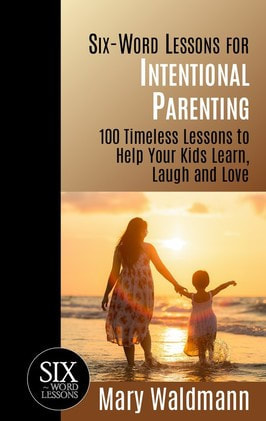 If your holiday shopping includes toys for kids, grandkids, nieces or nephews, keep in mind the advice of the American Academy of Pediatrics, as reported in the December 3, 2018 Los Angeles Times. If you plan to buy cutting-edge digital toys that promise to boost brainpower or give them a head start in school, the pediatricians’ advice is, “Don’t do it.” While they may come in packages featuring “expert” endorsements and price tags that imply value, high-tech toys may in fact undermine learning in young children. “Evidence suggest that the core elements of such toys (e.g. lights and sounds) detract from social engagement that might otherwise take place” that is important for social development. Pediatricians say the best toys for tots are old-fashioned hands-on playthings that young children can enjoy with parents--things that spark creativity and imagination like blocks, puzzles, even throwaways like cardboard boxes. If you’ve read my book, Six-Word Lessons for Intentional Parenting, you know that cardboard boxes can become many different toys with just a little imagination. The pediatricians go on to say, “Increased marketing of so-called ‘educational toys’ and the proliferation of digital media-based virtual ‘toys’ have fooled many parents into thinking that newer toys must be better.” They aren’t. The pediatrics academy recommends the toy lists from Zero to Three (zerotothree.org) and the National Association for the Education of Young Children (naeyc.org). Check them for good suggestions. And don’t forget books for children. There are both classics and wonderful new books appropriate for any age group. Buy one for a child you love and read it together. And while we’re talking about buying gifts for children, I recommend following the rule established by a parent friend who limits each child to four gifts from the parents, “Something you want, something you need, something to wear and something to read.” I think that’s good advice. Happy holidays! 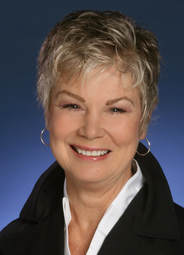 A graduate of Stanford University, Mary Waldmann and her husband Raymond raised three children who are now independent, well-adjusted and happy young adults. Before becoming a mother, she was a successful real estate broker, political consultant and public relations executive, and worked as a part-time communications consultant when her children were young. Mary is the author of Six-Word Lessons on Winning with Today's Media , Six-Word Lessons for Intentional Parenting, and Six-Word Lessons for Compelling Speeches. |
See the Authors!
All
|

 RSS Feed
RSS Feed